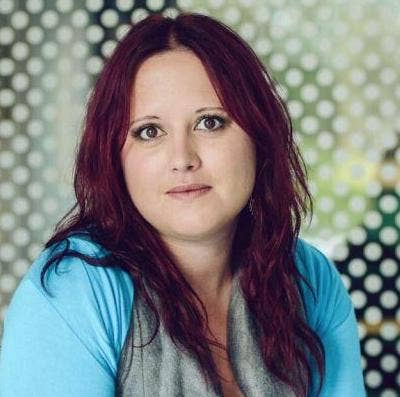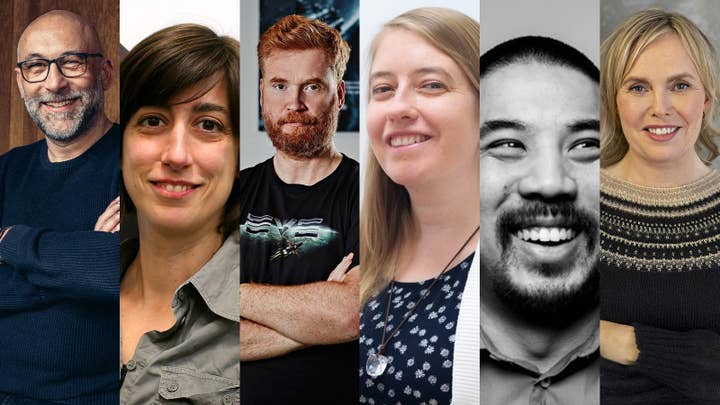How to survive until 2025 in the games industry
Developers and business leaders from across the industry share their advice on weathering the tumultuous times we currently face
'Survive until 2025.' The phrase still echoes around the games industry as it faces ongoing layoffs and studio closures.
At Develop:Brighton this year, GamesIndustry.biz invited an array of developers, studio heads, managers, and more to share their advice on how to endure the turbulent times we're experiencing. Here's what they had to say:
Seek funding outside the games industry
CCP CEO Hilmar Veigar Pétursson kicked things off by sharing a survival story from the Eve Online developer's early years, which still applies to those trying to find funding in 2024.
"We were in the internet bubble, it was amazing," Pétursson told attendees. "We raised $1.6 million but by April 2000, we figured out we only had the money to make half of Eve Online."
The studio began reaching out to more investors in 2001 but "didn't get very far." In the end, an Icelandic phone company became an equity investor, which kept them going until 2002, and selling publishing rights to Simon & Schuster, the US book publisher, got them through to 2003. The game launched that year and, the CEO laughs, "we've been chasing our tail ever since."
Listen to your board of directors
Caroline Marchal, CEO and creative director of As Dusk Falls developer Interior Night, said the most important thing she has done over the past two years was to listen to the recommendations from her board of directors.
While she acknowledged that smaller studios will not have a board, she urged them to seek similar people that can advise them.
"They are not friends, they are respected people coming from different industries or who have different skillsets than me – entrepreneurship, finances, and so on," she said. "They've seen more than me. I focus on the tree, which is the studio, while they look at the forest. They also have less skin in the game so they're more objective than me, and they have experience in other fields. They push me to make the hard decisions you don't want to make."
Take stock and pivot

Ella Romanos, COO of Fundamentally Games, said that the best thing in the current situation is to really examine what is truly causing problems for your business and, if need be, pivot into doing something different.
"Has the challenging environment been the only factor that's leading to your struggles this year, or has it exposed an underlying challenge which you now have the opportunity to address?" she asked.
"If it's just the environment, then by all means knuckle down. There's a huge amount of advice out there, so extend your runway and ride it out. But if it's exposed a weakness in your strategy, consider taking this opportunity to adjust, to pivot, to optimise, so you can come out swinging and take advantage of the hopefully inevitable upturn we're going to see in the not too distant future."
Raise money when you don't need it
IO Interactive's chief technology officer Ulas Karademir discussed the challenges of fundraising, emphasising that this is best conducted when your company isn't in desperate need of money.
"Often a lot of studios raise money, spend it, and then try to raise money when they don't have any. As soon as you close a round, make sure you start raising money again for the next part of your project. Don't wait until the end."
Prepare for failure
Alexander Sliwinski, COO of Bithell Games and author of The Game Dev Business Handbook, said that he and business partner Mike Bithell approach every game the same way: assume it is going to be a flop, and plan accordingly for that.
"Then we're pleasantly surprised when it all works out. A long-term benefit of this approach is that when things are good you can turn up the risk a little bit."
He added that, for many companies, it may already be too late and the only option left is a 'controlled crash.'
"If that's the case for you, make sure whatever money you've got is taking care of your people. How you end this chapter will colour the next one. But if you can stick it out until the next time, remember the line doesn’t always go up and to the right forever."
"Our morale and productivity can take a hit during challenging times so it's essential to prioritise the wellbeing of our teams"
Stefanía Guðrún Halldórsdóttir, Avalanche Studios Group
Seek partnerships outside the industry
Brand collaborations and partnerships continue to drive attention around many games, but it's not always easy to connect with a high-profile celebrity or licence holder. Playmob founder and CEO Jude Ower suggested that developers don't necessarily have to aim that high.
"Celebrities are a really powerful tool for user acquisition and discoverability," she said, adding that her studio has recently run a campaign with David Hasselhoff and has another lined up with Joe Jonas later this year.
"My advice when it comes to partnerships and collaborations is don't just go for the biggest names, go for some of the mid-tier brands and celebrities that are hungry to get into gaming. When you start to look outside of gaming, there are a lot of partnerships that can help boost your game and be discovered."
Leadership must lead the way
"Difficult times require resourceful and resilient leadership," said Stefanía Guðrún Halldórsdóttir, CEO of Avalanche Studios Group. "It's about preparing to face uncertainties and being capable of recovering from setbacks."
This means that leaders should be listening to players, paying attention to the market, and ensuring they always have a backup plan. Monitoring the financial health of your company is also key, but most important is being compassionate.
"Our morale and productivity can take a hit during challenging times so it's essential to prioritise the wellbeing of our teams."
Look after the people you still have

Code Coven's Cinzia Musio observed that, when it comes to layoffs, most of the thought and attention tends to (understandably) go on those who have lost their jobs. It's less common to show the same concern for those who must carry on when they're gone.
"The people left at the studio have also gone through months of uncertainty and having seen their friends' lives being completely upended, which will also have a massive toll on their wellbeing and ultimately their productivity," she said.
"I want people to think about how they can invest in people, bring that morale back, bring people back to your studio feeling excited again. Because this industry runs on passion, and if we leave people with uncertainty for a long time, we're going to kill that passion and their creativity. Invest in the people you still have at your studio and ensure they're in a place where they can thrive."
Focus inward
It might sound selfish, but Moo Yu's advice to focus inward is more about staying on course to ensure your business is working efficiently.
The Team Artichoke creative director said: "At a time where gatekeepers are in a stalling pattern and acting like everything is okay, it's really easy to waste a lot of time operating based on guesses of what they want or, even worse, acting on what they say they want when they don't really know. Focus on yourself, your game, your team, and what you're trying to do."
Consider starting your own studio
Alyx Jones was laid off in December 2023 after five years with her previous employer. She has since started her own company, Silver Script Games, and used this as an example of how staying exactly where you are now may not be the solution for you.
She added that the people affected by company downsizing and job cuts in the last two years might run their own studio "more responsibly and sustainably in the long term."
"It could lead to a healthier and more stable industry," she suggested. "I know this has happened before and will happen again, but hopefully some of us can learn from this."
Silver Script Games has raised nearly £100,000 so far. This has been primarily through grants and crowdfunding, with Jones adding: "Public funding was really a lifeline in a time when publishers are not investing as much."
"It's tempting to just say 'survive until 2025' but we need to do more than that. We need to work out what the effects of AI and all these incredible disruptive forces will be"
Charles Cecil, Revolution Software
Find ways to grow your current games
Andrew Eiche, CEO of Job Simulator developer Owlchemy, encouraged developers to find ways to freshen up their existing games and potentially attract new players.
"There's almost no game on the planet that has maximised its player count. As developers, we're often enamoured with the resplendent glow of working on something new. Suppressing that urge and finding small to medium additions to your current titles can breathe new life into an existing game.
"I'm certain every dev of even a modestly successful game has a mountain of suggestions from fans. Update your game and help grow your audience."
Find new ways to use your skills

Gina Jackson, industry veteran and founder of Skillfull, offered advice for individuals rather than businesses, urging games professionals to find new opportunities to use their skills wherever they can.
She offered the example of a graduate she worked with who was desperate to do 3D art in games, but was stuck working in a pub. She knew she needed a portfolio but couldn't get experience because she couldn't get a junior role as there are so few available.
"So what has she done? She's joined a furniture company," Jackson declared. "That sounds odd, but she's making the most incredible portfolio of 3D furniture, so she's not missing out. When her colleagues and peers are still working in a pub and looking for jobs, she's got experience and a portfolio."
Help invest in companies if you can
The Games Angels founder Nick Button-Brown offered more assurance than advice, explaining that while 2023 was "a shitshow" when it comes to the investment landscape, 2024 is already an improvement.
Currently seeking ways to improve the funding opportunities in the UK, he observed that the number of deals improved across March, April, and May.
"We are at the levels, in terms of pre-seed or seed deals, that are much higher than prior to 2020. Let's forget the bit in the middle – we're back to reasonable levels. Later deals aren't happening yet, but maybe by the middle of next year."
Beware predatory publishing deals
In hard times, it can be tempting to take any deal you can get in order to ensure money is coming in. But Kitfox Games' Tanya X. Short urged caution.
"Speaking as a publisher, sometimes a bad deal is worse than no deal," she said. "These days nobody should be asking you for ownership of your IP or 100% recoup unless they're giving you a lot of money – and I mean millions."
For smaller studios, especially those with 20 people or less on the team, Short recommended self-publishing, although she did say that there will still be some publishers out there with "good deal terms and something clear to offer."
Prepare for the new normal
Revolution Software founder and CEO Charles Cecil finished off the session by reminding people that, as and when things do settle, "it won't be the same as it was before."
"It's tempting to just say 'survive until 2025' but I think we need to do more than that. We need to work out what the effects of AI will be, what the impact of all these incredible disruptive forces will be. So remain super cautious until that happens."
He added that the current situation feels similar to 2008, when there was the double whammy of a financial crisis and digital distribution changing the games landscape.
"In the last great disruptive period, the biggest publisher in the world THQ was bankrupt within three years, and developers were able to thrive because they could find the niches that emerged and hadn't been seen. I'm absolutely sure that's what's going to happen. So when things get better, it will be different. Make sure, as small developers, that you can exploit those [niches] and it will be fantastic."

